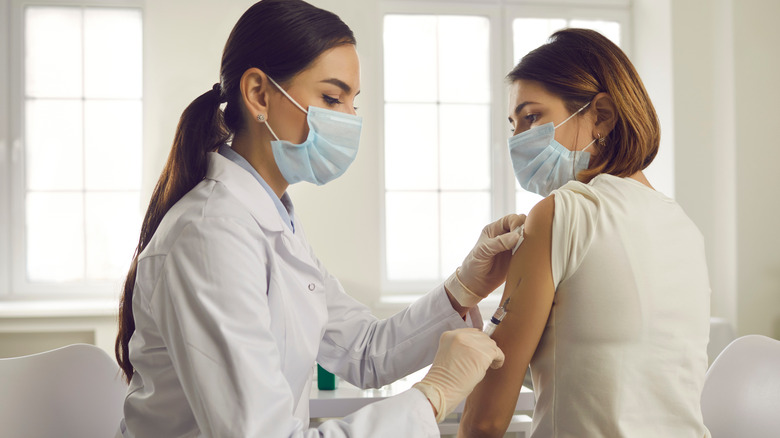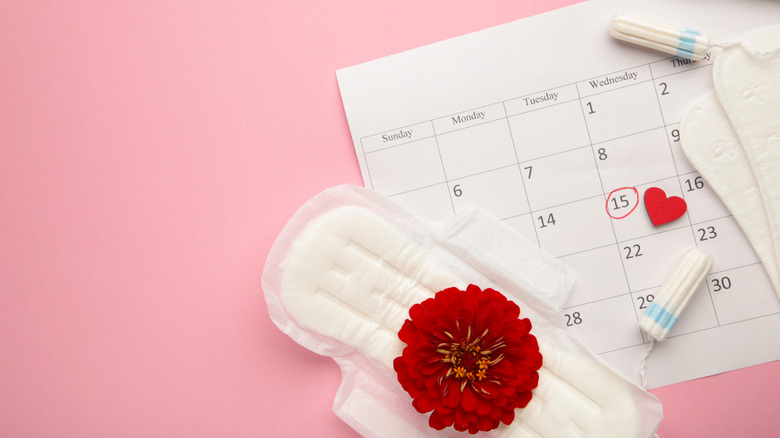How The COVID-19 Vaccine Can Affect Your Menstrual Cycle
In August of 2021, the FDA approved the first COVID-19 vaccine, bringing relief and hesitation to many. COVID-19 devastated the world, causing deaths, economic and housing crises, mental health issues, and worldwide instability, all in the span of the year between its spread and the arrival of the vaccine.
The speed at which the vaccine arrived caused many to question its validity. Scientists explained that the COVID-19 vaccine was able to be produced so quickly thanks to the global partnership by scientists, an increase in funding due to need, and foundational knowledge about the coronavirus family (via Medical News Today).
Despite these explanations, misinformation about the vaccine spread rapidly thanks to social media. Conversations about whether there was a chip in the vaccine (there's not) or if it'll make you grow an extra arm (it won't) dominated the internet while its effect on women and people with a menstrual cycle often slipped through the cracks.
New research shows that the vaccine may lengthen your cycle
Back in 2021, The Brink, a Boston University science publication, reported that women stated how after receiving the vaccine, they experienced changes in their menstrual cycle, particularly more intense bleeding and pain, longer cycles, and an earlier arrival. Due to this being spread anecdotally, it wasn't something that was discussed because women in vaccine trials were not asked about the effects on their menstrual cycle (via NBC News).
Now, new research shows that there's an increase in the menstrual cycle length after the COVID-19 vaccine is taken. The study was previously completed by Dr. Alison Edelman, a professor of obstetrics and gynecology at Oregon Health and Science University, and was confirmed by a larger international study.
Using data from Natural Cycles, a fertility and period tracking app, researchers determined that on average, people who were vaccinated had their menstrual cycles increase by almost a day. Meanwhile, research from the Norwegian Institute of Public Health found that 42% of the people in their study experienced heavier bleeding after receiving the vaccine.
Both the increased bleeding and longer periods were temporary effects of receiving the vaccine. Scientists are still looking into the cause behind these side effects.

